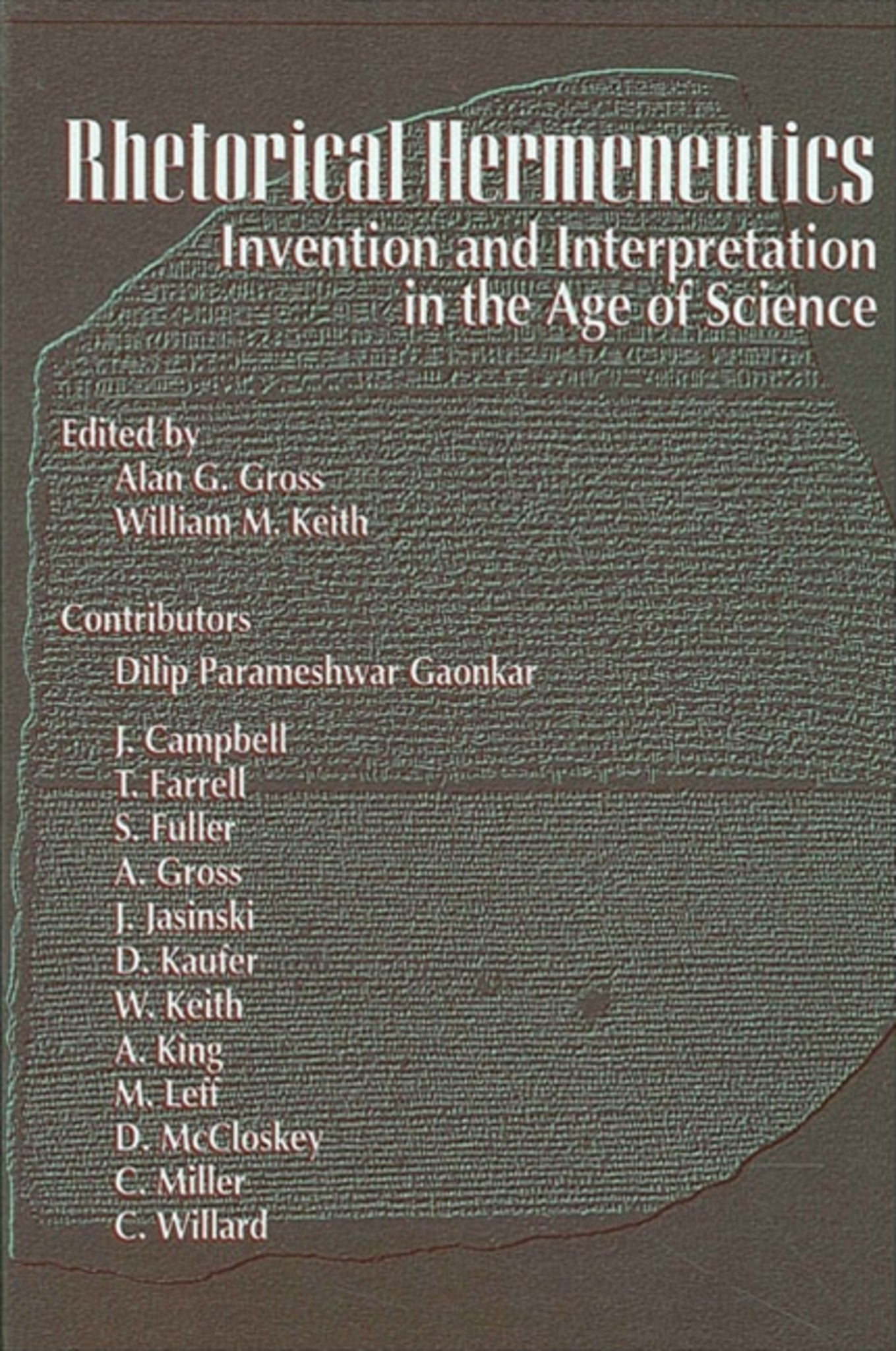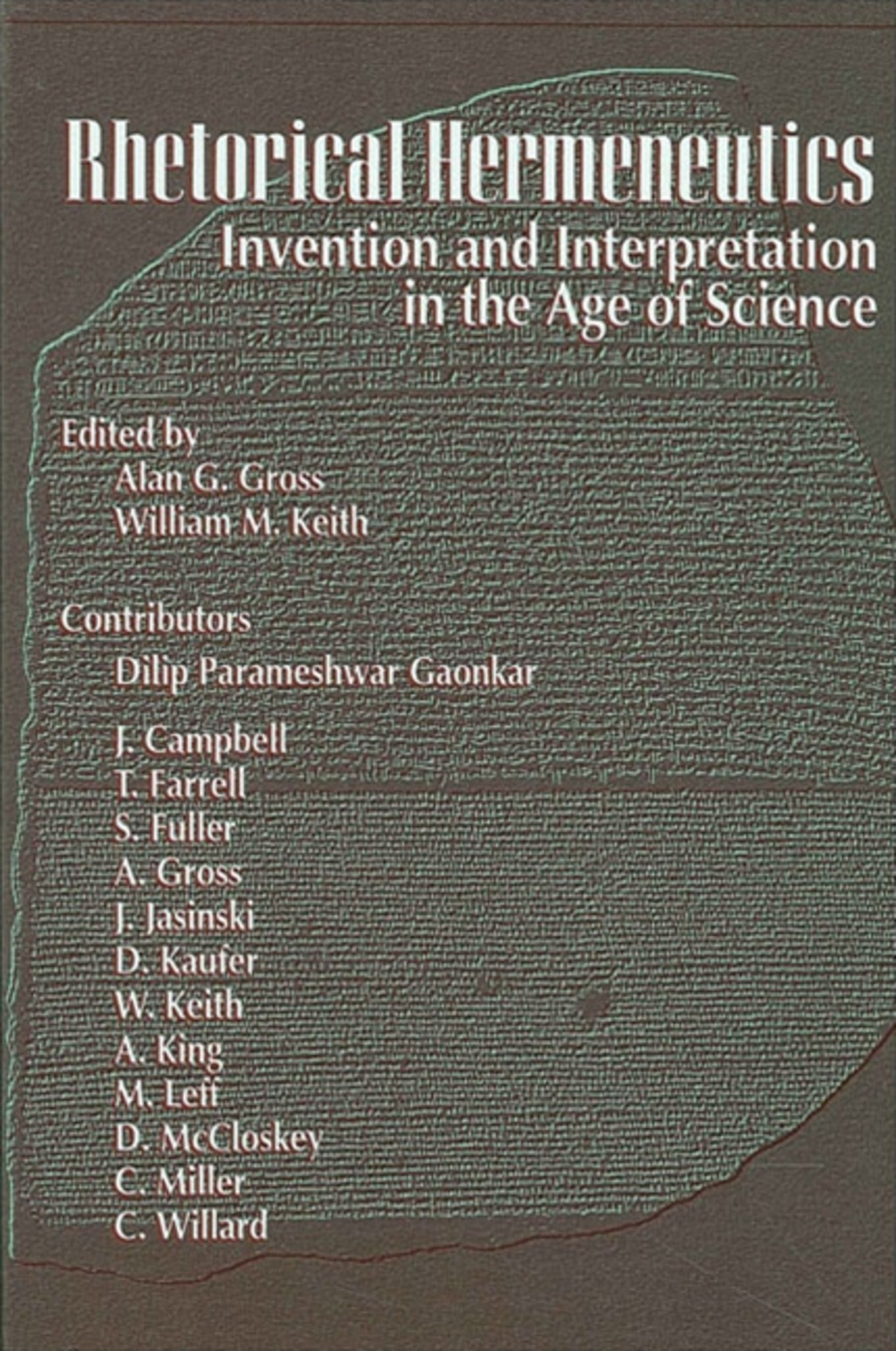We're sorry. An error has occurred
Please cancel or retry.
Rhetorical Hermeneutics

Some error occured while loading the Quick View. Please close the Quick View and try reloading the page.
Couldn't load pickup availability
- Format:
-
21 November 1996

Examines the nature of rhetorical theory and criticism, the rhetoric of science, and the impact of poststructuralism and postmodernism on contemporary accounts of rhetoric.
Rhetorical Hermeneutics asks whether rhetorical theory can function as a general hermeneutic, a master key to texts. The dazzling central essay by Dilip Parameshwar Gaonkar questions rhetoric's globally interpretive status; Gaonkar begins with the ubiquity of rhetoric: "It is a habit of our time to invoke rhetoric, time and again, to make sense of a wide variety of discursive practices that beset and perplex us, and of discursive artifacts that annoy and entertain us, and of discursive formations that inscribe and subjugate us. Rhetoric is a way of reading the endless discursive debris that surrounds us."
Starting from the work of John Angus Campbell, Alan Gross, and Lawrence Prelli on the rhetoric of science, Gaonkar broadens his critique to fundamental issues for any rhetorical theory and develops four questions that cut to the heart of the possibility of a (post)modern rhetoric: How can rhetoric, an art traditionally directed toward practice, transform itself into hermeneutic theory, a mode of reading? Does contemporary rhetorical theory have legitimate theoretical status? Can an intentional, strategic theory of rhetoric survive the poststructuralist, postmodernist critique? Is the case study, the centerpiece of rhetorical and ethnographic scholarship, epistemologically robust enough to bear the weight of a discipline?
Representing a variety of disciplines, contributors to this volume include: M. Leff, D. McCloskey, J. A. Campbell, A. Gross, S. Fuller, C. Miller, C. Willard, J. Jasinski, W. Keith, D. Kaufer, A. King, and T. Farrell. In a pellucid final essay, "A Close Reading of the Third Kind," Gaonkar responds to his critics.


"This volume provides thoughtful answers to a surprisingly large number of significant questions in the rhetoric of science and in rhetorical theory generally. It will have a wide readership because of its topical interest, its attention to basic theoretical issues, and its presentation of high quality academic debate." — Robert Hariman, Drake University
"...an extraordinary book. The engagement is consistent throughout the volume. Unlike most anthologies, there is no issue of continuity in this one. It contains treatments of the field's most central issues and has a group of well-known authors who, in fact, have helped to define the field. I know of no book that approaches an engagement at this level. Thank you for giving me the opportunity to read it." — Michael J. Shapiro, University of Hawaii
"Rhetorical Hermeneutics is a fascinating collection of essays … the discussion becomes dynamic, invigorating, challenging, as each contributor impacts upon the work of the others around her/him … The result is exciting." — H-Net Reviews (H-Rhetor)
"The essay by Gaonkar has forced rhetorical scholars to reexamine the history and future of their discipline in the wake of postmodernism, and to contemplate the very nature of rhetorical criticism itself, not just in a scientific context but in a much wider social-political milieu. This text most certainly will stir up an already volatile debate."— Ken Zagacki, Louisiana State University
Acknowledgments
Introduction
Alan G. Gross and William M. Keith
Part I: Provocations
1. The Idea of Rhetoric in the Rhetoric of Science
Dilip Parameshwar Gaonkar
Part II: Dissensions
2. The Idea of Rhetoric As Interpretive Practice: A Humanist's Response to Gaonkar
Michael Leff
3. Big Rhetoric, Little Rhetoric: Gaonkar on the Rhetoric of Science
Deirdre McCloskey
4. Strategic Reading: Rhetoric, Intention, and Interpretation
John Angus Campbell
5. What If We're Not Producing Knowledge? Critical Reflections on the Rhetorical Criticism of Science
Alan G. Gross
6. Classical Rhetoric without Nostalgia: A Response to Gaonkar
Carolyn R. Miller
7. Rhetoric's Lot
Charles Arthur Willard
Part III: Extensions
8. Instrumentalism, Contextualism, and Interpretation in Rhetorical Criticism
James Jasinski
9. Engineering Rhetoric
William M. Keith
10. From Tekhne to Technique: Rhetoric as a Design Art
David S. Kaufer
11. "Rhetoric of Science": Double the Trouble?
Steve Fuller
12. The Rhetorical Critic and the Invisible Polis
Andrew King
Part IV: Reflections/Refractions
13. An Elliptical Postscript
Thomas B. Farrell
14. Close Readings of the Third Kind: Reply to My Critics
Dilip Parameshwar Gaonkar
Contributors
Subject Index
Name Index



